Published
- 04:00 am
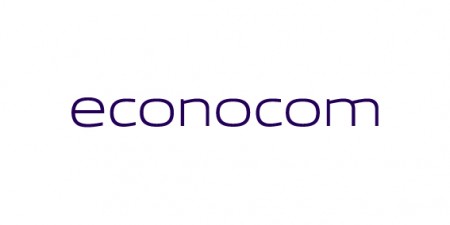
Econocom UK & IRL, a leading provider of digital transformation solutions, has appointed Ruth Glennon as its new Digital Strategy Director, signifying another positive step forward in the company’s ambitious growth plans.
Glennon has more than 18 years’ experience in structuring financial solutions to support large technology and digital transformation projects. Prior to joining Econocom, she spent three years at Accenture as a Senior Executive Manager, where she was primarily responsible for business development and delivering innovative, transformational solutions to clients. Before that, she held the position of European Head of Sales for the technology division of Commonwealth Bank of Australia in the City of London, which included leading strategic partnerships with Barclays Bank and Nordea Group.
In her role as Digital Strategy Director at Econocom, Glennon will be working in collaboration with both new and existing strategic business partners to design new B2B solutions that complement Econocom’s existing offerings and offer the same standards as the best B2C experiences. She will also be working closely alongside the senior leadership team from a business development perspective to achieve the company’s ‘E for Excellence’ strategic plan, which aims to reach €4 billion in revenue by 2022.
Glennon says: “I’m thrilled to have joined Econocom as Digital Strategy Director for the UK and Ireland. Having spent many years specialising in business development, I believe it is crucial to be aware of the latest industry trends and recently Econocom has stood out to me as a company with an exciting future strategy. A strategy and approach focussed on helping companies to realise their digital transformation plans and to provide immersive customer engagement, and so to play a part in the evolution of the company at this point in time is exciting.”
Glennon assumed her new role at Econocom in October 2017, and is reporting into the company’s Managing Director for UK & IRL, Chris Labrey.
“Ruth really impressed us, both with the experience she has and her views for the future, and so we knew from a very early stage that she would be an ideal fit for us at Econocom,” said Labrey. “There are a lot of exciting technological developments happening right now — the like of mixed reality, machine learning, AI and much more — that could influence how we operate as a business and what we offer to our customers, and I’m sure Ruth’s input will be incredibly valuable as we continue to grow and expand.”
Related News
- 09:00 am
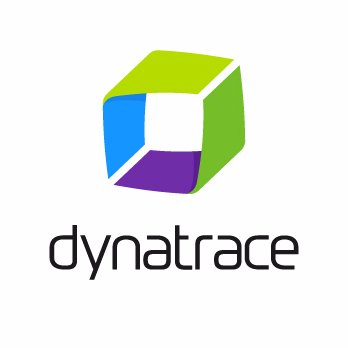
Digital performance management company, Dynatrace, today announced the findings of an independent global survey of 249 CIOs in the financial services sector, which reveals that 75% of organizations think IT complexity could soon make it impossible to manage digital performance efficiently. The study further highlights that IT complexity is growing exponentially; a single web or mobile transaction now crosses an average of 38 different technology systems or components, compared to 26 just five years ago.
This growth has been driven by the rapid adoption of new technologies in recent years. However, the upward trend is set to accelerate, with 54% of finance CIOs planning to deploy even more technologies in the next 12 months. The research revealed the key technologies that CIOs in the financial services sector will have adopted within the next 12 months include multi-cloud (97%), microservices (90%) and containers (88%).
As a result of this mounting complexity, IT teams in financial services firms now spend an average of 30% of their time dealing with digital performance problems; costing their employers $3.8 million annually. As they search for a solution to these challenges, more than four in five (84%) of finance CIOs said they think Artificial Intelligence (AI) will be critical to IT's ability to master increasing IT complexity; with 92% either already, or planning to deploy AI in the next 12 months.
“Financial services organizations are under huge pressure to keep-up with the always-on, always connected digital economy and its demand for constant innovation,” said Matthias Scharer, VP of Business Operations, Dynatrace. “Customer experience is the new battleground for financial services organizations, with both regulators and consumers driving innovation. As a consequence, IT ecosystems are undergoing a constant transformation. The transition to virtualized infrastructure was followed by the migration to the cloud, which has since been supplanted by the trend towards multi-cloud. CIOs have now realized their legacy apps weren’t built for today’s digital ecosystems and are rebuilding them in a cloud-native architecture. These rapid changes have given rise to hyper-scale, hyper-dynamic and hyper-complex IT ecosystems, which make it increasingly difficult to monitor digital performance and manage the user-experience effectively.”
The research further identified the challenges that financial services organizations find most difficult to overcome as they transition to multi-cloud ecosystems and cloud native architecture. Key findings include:
- 76% of CIOs from financial services organizations say multi-cloud makes it especially difficult and time-consuming to monitor and understand the impact that cloud services have on the user-experience
- 75% are frustrated that IT has to spend so much time setting-up monitoring for different cloud environments when deploying new services
- 75% of finance CIOs say monitoring the performance of microservices in real-time is almost impossible
- 80% of CIOs from financial services organizations say the dynamic nature of containers makes it difficult to understand their impact on application performance
- Maintaining and configuring performance monitoring (56%) and identifying service dependencies and interactions (52%) are the top challenges finance CIOs identify with managing microservices and containers
“For cloud to deliver on expected benefits, financial services organizations must have end-to-end visibility across every single transaction,” continued Mr. Scharer. “However, this has become very difficult because they are building multi-cloud ecosystems on a variety of services from AWS, Azure, Cloud Foundry and SAP amongst others. Added to that, the shift to cloud native architectures fragments the application transaction path even further.
“Today, one environment can have billions of dependencies, so, while modern ecosystems are critical to fast financial services innovation, the legacy approach to monitoring and managing performance falls short. You can’t rely on humans to synthesize and analyze data anymore, nor a bag of independent tools. You need to be able to auto detect and instrument financial services IT environments in real time, and most importantly use AI to pinpoint problems with precision and set your environment on a path of auto-remediation to ensure optimal performance and experience from a customer’s perspective.”
Further to the challenges of managing a hyper-complex IT ecosystem, the research also found that IT departments within financial services organizations are struggling to keep pace with internal demands from the business. 76% of finance CIOs said that IT is under too much pressure to keep up with unrealistic demands from the business and end users. 79% also highlighted that it is getting harder to find time and resources to answer the range of questions the business asks and still deliver everything else that is expected of IT. In particular, 80% of CIOs from financial services organizations said it is difficult to map the technical metrics of digital performance to the impact they have on the business.
This research, commissioned by Dynatrace, is based on a global survey of 249 CIOs in financial services organizations with over 1,000 employees, conducted in August 2017 by Vanson Bourne.
Related News
- 05:00 am

Vocalink, a Mastercard company, has announced a partnership with Shieldpay, to use Pay by Bank app, its market leading mobile payments services as a new deposit method available to Shieldpay customers.
Shieldpay’s trusted payments network protects both buyer and seller in any transaction by verifying the identity of all parties – funds are held securely in the Shieldpay Vault, and are only released when both parties agree. Shieldpay enables either individuals or businesses to create this instant digital escrow facility with no set-up costs to eliminate payment fraud so that anyone, anywhere can transact with total confidence.
Pay by Bank app, a brand new way to pay, will be a deposit method available to Shieldpay customers, along with credit card, debit card and bank transfer. When layered together, Shieldpay and Pay by Bank app will create the most secure, yet seamless way to pay via your bank account.
Pay by Bank app allows the customer to pay from their existing mobile banking app – an immediate payment that settles instantly, and has the added benefit for customers of being able to see their real-time balance whilst doing so.
Related News
- 01:00 am

Thales, a leader in critical information systems, cybersecurity and data security, announces A-Trust, an Austrian qualified trusted service responsible for issuing digital certificates for the country's citizens and economy to use in electronic transactions, is deploying Thales nShield hardware security modules (HSMs) to protect its certificates and meet compliance regulations.
With security top of mind, A-Trust turned to Thales to support it with fast, simple digital signature security. Thales nShield is a hardened, tamper-resistant, FIPS-compliant platform that supports encryption and digital signing along with key generation and protection. It is also certified to Common Criteria (CC) EAL4+, which recognizes nShield HSMs as Secure Signature Creation Devices (SSCDs). This means that nShield can provide the digital signatures, time stamps and other transactional data necessary to enable A-Trust to comply with RKSV and the cross-border standards mandated by eIDAS.
Thales nShield has helped A-Trust meet a number of business needs, including:
- Easing the burden on merchants by offering them a device (nShield HSM) to support certified digital signatures
- Creating a cost-effective, simple-to-use solution
- Enabling scalability to facilitate A-Trust's ambitious growth plans
Michael Butz, CEO at A-Trust
"The Thales nShield HSM enables us to offer a simple-to-use-solution based on full electronic end-to-end compliance with all applicable regulations. The ease of deployment facilitates our growing visibility across Europe which has created a huge demand for our products. Trust, integrity and security are the foundations of our company, and Thales helps us to achieve those goals."
Kai Zobel, Regional Sales Director D-A-CH for Thales eSecurity says:
"Companies on the hook for meeting compliance regulations – such as eIDAS – have to take the utmost diligence and care in ensuring their solutions are trustworthy. Thales HSMs serve as the root of trust, creating high assurance credentials that ensure the integrity of a transaction or application, which is vital in underpinning the digital transformation of industry and enterprises."
Related News
- 03:00 am
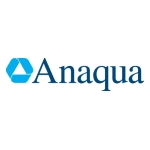
Anaqua, Inc., a leading provider of Intellectual Property (IP) management services and software, today announced that Diebold Nixdorf has selected the ANAQUA platform to manage its global IP portfolio from its operations in the U.S. and Germany.
Diebold Nixdorf, a financial self-service, software and services corporation and global leader in the automated teller machine (ATM) industry, will use Anaqua’s software and services to manage its complete IP asset portfolio, including patents, trademarks, designs, and inventions. Diebold Nixdorf, which manages over 5,000 active patents and trademarks, was previously using two different systems for managing IP.
“As our company continues to grow rapidly across the globe, we were looking for an IP system that was technologically advanced with built-in analytics and dashboards,” said Edward Crooks, vice president and executive counsel of IP at Diebold Nixdorf. “We were impressed by Anaqua’s complete IP management solution and its integrated services, workflow automation, and outside counsel integration.”
Diebold Nixdorf was formed in August 2016 through the combination of Diebold, Incorporated and Wincor Nixdorf. The global company has a presence in more than 130 countries with approximately 25,000 employees worldwide. The organization maintains corporate offices in North Canton, Ohio, USA and Paderborn, Germany.
“We are honored to be selected by the world’s largest maker of ATM machines and cash systems,” said Anaqua CEO Bob Romeo. “Our teams in both Germany and the U.S. look forward to helping them continue to accelerate their pace of innovation and to manage their global IP assets more effectively.”
Related News
- 01:00 am

CreditEase, a Beijing-based leading financial technology conglomerate specializing in inclusive finance and wealth management, announced that its Founder and CEO, Mr Ning Tang, participated and spoke at the World Economic Forum Annual Meeting 2018 in Davos-Klosters, Switzerland.
Founded in 1971 by Professor Klaus Schwab, the World Economic Forum is a premier global platform for public-private cooperation and committed to improving the state of the world.
Under the central theme of "Creating a Shared Future in a Fractured World", this year's meeting has drawn an estimated 2,500 participants, including a record number of heads of state and leaders from politics, business, academia, and civil society.
Widely recognized as a global FinTech industry pioneer, Mr Tang has been invited to speak regularly at the Annual Meeting of the New Champions, the World Economic Forum's yearly summer gathering held in China. This year marks the first time Mr Tang participated in the Forum's annual winter conference.
Speaking at the "A Shared Vision for Financial Inclusion" panel, Mr Tang joined Mauricio Cardenas, Colombia's Minister of Finance and Public Credit, as well as senior executives from Diamond Bank, Ant Financial, and Visa, to discuss opportunities and challenges facing financial inclusion globally, and ways to accelerate its progress through increased innovation and expanded use of FinTech to reach more underbanked populations.
Mr Tang was also invited to the Forum's Financial Inclusion Steering Committee Meeting to exchange opinions with H.M. Queen Máxima of the Netherlands, among other distinguished guests. He was also interviewed by PwC on how China is leading the global FinTech race, and invited to speak about China's role in the world's economic growth at the Davos Luncheon hosted by Tencent News and Peking University. International news organizations including CNBC and CGTN interviewed Mr Tang on the outlook for the FinTech industry.
"Technology has greatly improved access to financial services for Chinese consumers and small businesses in the past decade, and we expect more progress to be made in the SME lending space with the help of FinTech in coming years," said Mr Tang. "Financial services like angel investing and VC/PE, powered by technology, will bring more high-quality growth to the Chinese economy."
Since its establishment in 2006, CreditEase has been at the forefront of leveraging FinTech to transform China'smarketplace lending and wealth management industry, providing highly customized financial services for different client segments. Boasting a global network with offices in major financial and technology hubs around the globe, CreditEase also actively engages with the world's leading FinTech players through incubation, cooperation, and investment. Its annual FinTech-themed summit, the Silicon Valley - Beijing Dialogue, is one of the industry's most closely watched events, bringing together renowned industry veterans and market shapers from both China and the US to offer illuminating insights on the FinTech industry.
Related News
- 02:00 am
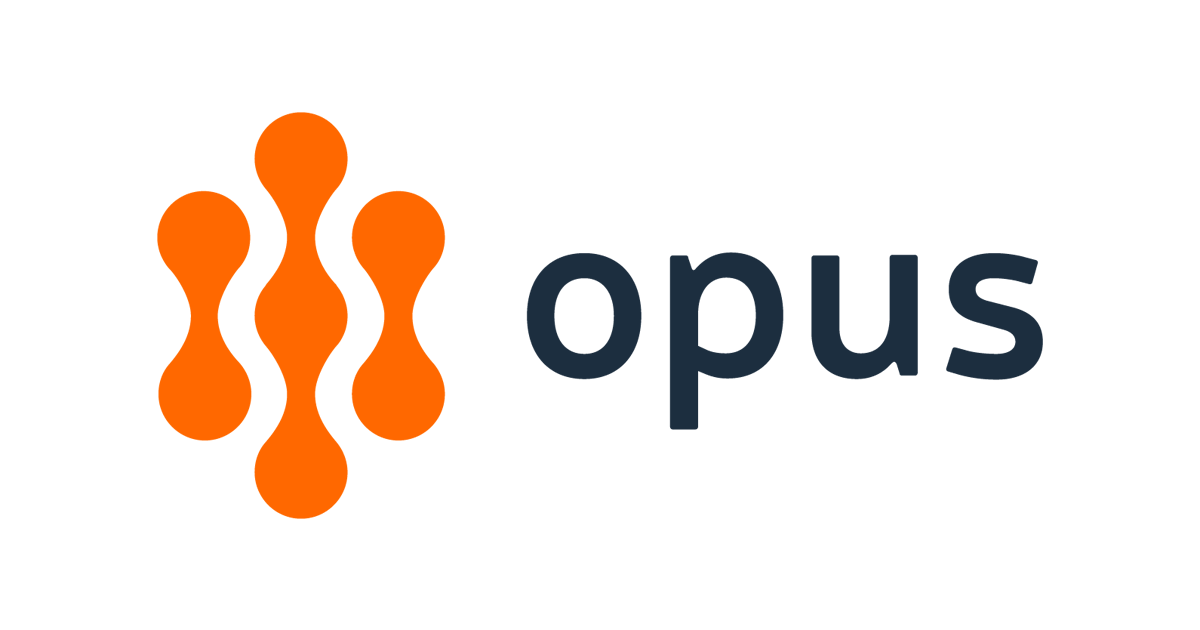
Opus, the leading provider of global compliance and risk management solutions, today launched a new turnkey solution that dramatically simplifies and speeds up the ability to comply with anti-corruption regulations.
The Hiperos 3PM solution has pre-configured and automated workflow and screening capabilities that now also include comprehensive, global risk data from C6 Intelligence, a leader in Adverse Media, anti-bribery & corruption, anti-money laundering and Fraud Intelligence. The new solution puts all the tools global corporations need to manage their anti-bribery/anti-corruption (ABAC) risks in one place.
Bribery and corruption are among today’s most pressing risks, as companies around the world look across borders to grow their business, often engaging local partners to support their expansion into new territories. As third-party networks expand, so does exposure to corruption risk. Compliance teams are coming under significant pressure to improve their ability to quickly and easily identify, assess, mitigate and manage this risk.
“We are excited to launch this new unique offering that will provide companies with a comprehensive risk-based approach to ABAC that’s also easy to implement and maintain,” said Emanuele Conti, CEO of Opus. “By combining our purpose-built compliance solutions with global risk intelligence, we can now offer turnkey solutions that meet the compliance needs of enterprises around the world.”
Joel Lange, Managing Director, C6 said, “We are thrilled to partner with Opus to help clients meet regulatory guidance and use proven best practices to move beyond a traditional, due diligence-led approach. This partnership signifies our path toward a more sophisticated model that significantly increases efficiency and enhances protection from risk for our clients.”
The powerful combination of Opus’s workflow and C6’s high-quality risk intelligence data allows organizations to streamline and drive consistency in their compliance processes, including:
· Pre-built questionnaires for segmenting third parties according to risk and for gathering due diligence data
· Advanced risk screening against C6 global data that minimizes false positives
· A user-friendly interface to review due diligence findings, seamlessly order enhanced due diligence and approve/deny third parties
· Comprehensive reports that provide a holistic view of all third-party risk at any point in time
· Ongoing monitoring that alerts users to material changes in the profile of a third party
Related News
- 09:00 am

BPCE, the leading French banking group, today announced that it has signed a partnership agreement with Meniga, the global leader in digital banking solutions. The agreement will see BPCE deploy Meniga’s technology across BPCE’s Banques Populaires and Caisses d’Epargne in France.
As part of its digital transformation BPCE will integrate Meniga’s technology to enhance their digital channels and introduce compelling new personalised services to better serve its customers. The first phase of the rollout will include Meniga’s award-winning Financial Activity Feed, real-time spending overview and data-driven personalised alerts and insights.
In light of the new EU Payment Services Directive (PSD2) coming into force this month, Meniga is well positioned to help BPCE capitalise on their transaction data and stay ahead in an increasingly competitive market.
François Pérol, CEO of BPCE said: “As we enter into an era of open banking, we look forward to working closely with Meniga to transform our digital customer experience. Meniga’s data-driven digital banking solutions will help accelerate our digital transformation journey and help us adapt to the ever-evolving needs of our customers”
Georg Ludviksson, CEO and co-founder of Meniga, said: “Meniga is excited to be partnering with BPCE. We have been very impressed by BPCE’s commitment to digital innovation and their clear focus on their mobile banking application through a simple and personal user experience.”
Meniga, a three times ‘BestOfShow’ winner at Finovate, European Fintech Awards winner and featuring on the exclusive FinTechTop50 list in 2014, 2016 and 2017, specialises in helping banks build personalised digital banking solutions based on personal finance data.
Related News
- 07:00 am
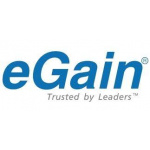
eGain (NASDAQ:EGAN), the leading provider of cloud customer engagement solutions, today announced that company CEO Ashu Roy will talk about digital transformation at Elisa Digital and AI Summit.
A thought leadership forum for executives focused on contact centers, customer engagement, and digital transformation, the event is hosted by Elisa, a premier partner for eGain in the Nordics region.
As part of his presentation, Mr. Roy will discuss how transforming the experience triad holistically-agent experience (AX), business experience (BX), and customer experience (CX)-is critical for success in digital transformation (DX). He will also explain how eGain's rich capabilities in digital engagement, AI knowledge, and connected analytics, along with Elisa's services, can make DX easy. In addition, cloud-based innovation, GDPR, and client case studies will be part of the discussion.
Related News
- 04:00 am
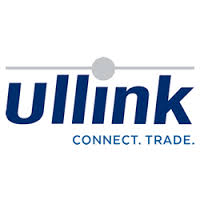
ULLINK, the global provider of electronic trading and connectivity solutions to the financial community, announced today that Alantra Equities (formerly known as N+1 Equities) has successfully gone live with ULLINK’s high-touch order management system (OMS) ODISYS and NYFIX connectivity hub. Alantra Equities, the Spanish equities broker division of the global mid-market investment banking and asset management specialist Alantra, went live in advance of the January MiFID deadline to ensure full compliance with the new regulations.
Alantra Equities decided to replace its existing platform with a modular solution that allowed for institutional broking specialisation and offered scalability to cope with future growth. It also needed to ensure full compliance with the Markets in Financial Instruments Directive (MiFID) II. To fulfil these needs, Alantra Equities looked for a credible technology partner that had a long-term vision and roadmap, could deliver value for money, and showed experience and commitment to the market participants. ULLINK was selected as that partner.
The implementation of ULLINK’s ODISYS High Touch OMS allows Alantra’s traders to benefit from a full range of front office and pre-trade risk capabilities. The capabilities of the ULLINK suite are further enhanced with pre-trade and post-trade transaction cost analysis (TCA) and best execution reporting thanks to the seamless integration with partner solutions from OTAS and LiquidMetrix. Connectivity to ULLINK’s NYFIX community of buy-sides, sell-sides and trading venues is provided via the NYFIX order routing network and ULLINK’s leading UL BRIDGE connectivity middleware.
Commenting on the selection of ULLINK, Adolfo Ximenez de Embun from Alantra Equities said, “ULLINK has a strong reputation for supplying outstanding electronic trading solutions. The breadth of their offering across trading and connectivity met our needs for a modular but well-integrated solution. We are confident the implementation of our new, state of the art connectivity and trading platform will enable us to fullfil our customers’ needs, grow our business, and maintain regulatory compliance whilst efficiently controlling our total cost of ownership.
Philippe Thomas, ULLINK’s Managing Director EMEA, added, “We are delighted to partner with Alantra Equities, a leading Spanish brokerage. Our huge investment in upgrading our products for MiFID II is paying off and we continue to attract new customers looking to replace their existing platforms. Our approach, which is based on tailoring our solution to customers’ specific needs by selecting only modules they require and integrating with other vendor and in-house solutions where necessary, is key to this kind of platform replacement project.”









